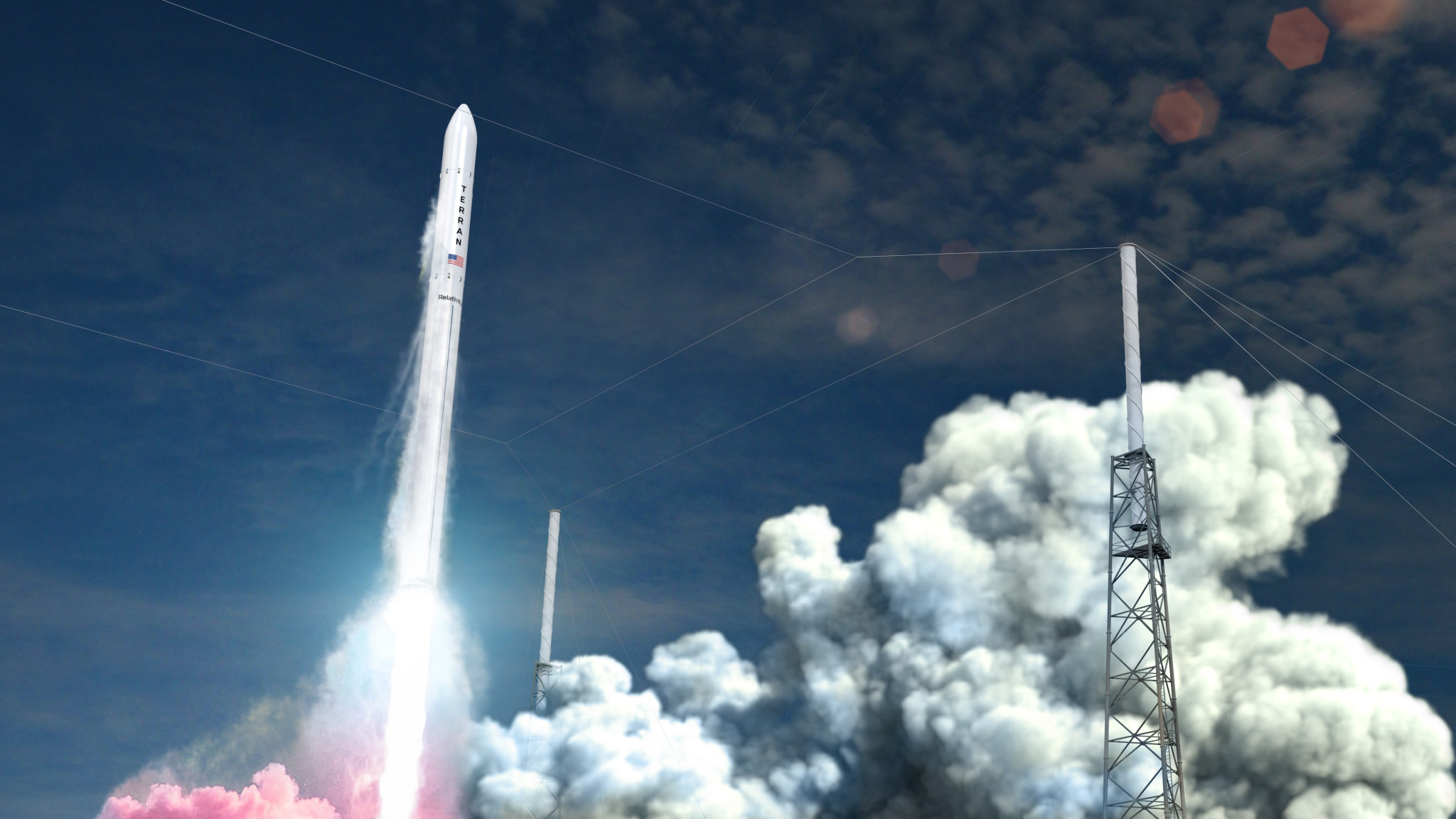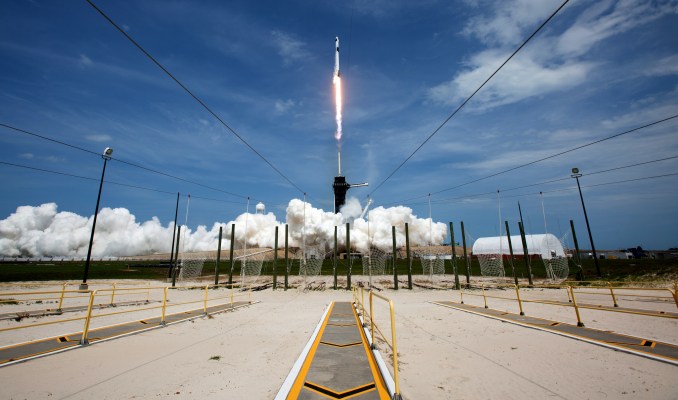Laura Crabtree spent a good chunk of her childhood watching rocket launches on television, and her entire professional career launching rockets, first at Northrup Grumman and then at SpaceX.
Now, the former senior missions operations engineer at SpaceX is the co-founder and chief executive of a new LA-based space startup called Epsilon3, which says it has developed the operating system for launch operations.
“The tools I had wanted did not exist,” said Crabtree. So when she left SpaceX to pursue her next opportunity, it was a no-brainer to try to develop the toolkit she never had, the first-time entrepreneur said. “I started looking at ways in which I could help the space industry become more efficient and reduce errors.”
Joining Crabtree in the new business is Max Mednik, a serial entrepreneur whose last company, Epirus, raised at least $144.7 million from investors including 8VC, Bedrock Capital and L3 Harris Technologies, and Aaron Sullivan, a former Googler who serves as the chief software engineer. Mednik worked at Google too before turning his attention to entrepreneurship. His previous businesses ranged from financial services software to legal services software, but Mednik also had an interest in aerospace. His first job offers out of school were with SpaceX, JPL and Google.
Part of a growing network of SpaceX alumni launching businesses, Epsilon3, like its fellow travelers First Resonance and Prewitt Ridge, is creating a product around an aspect of the design, manufacturing mission management and operations of rockets that had previously been handled manually or with bespoke tools.
“They make mission management software for the launchers and for the satellite companies that are going to be the payload of the rocket companies,” said Alex Rubalcava, the founder and managing partner of Stage Venture Partners, an investor in the company’s recent seed round. “It’s not just the design and spec but for when they’re actually working what are they doing; when you’re uplinking and downlinking data and changing software.”
Rubalcava acknowledged that the market for Epsilon3 is entirely new, but it’s growing rapidly.
“This was an analysis based on the fact that access to space used to be really expensive and used to be the provenance of governments and 10 or 20 commercial satellite operators in the world. And it was limited by the fact that there were only a handful of companies that could launch,” Rubalcava said. “Now all of a sudden there’s going to be 30 different space flights. Thirty different companies that have rockets… access to space used to scarce, expensive, and highly restricted and it’s no longer any of those things now.”

Image Credits: Relativity Space
The demand for space services is exploding, with some analysts estimating that the launch services industry could reach over $18 billion by 2026.
“It’s a very similar story and we all come from different places within SpaceX,” said Crabtree. First Resonance provides software that moves from prototyping to production; Prewitt Ridge provides engineering and management tools; and Epsilon3 has developed an operating system for launch operations.
“You’ve got design development, manufacturing, integration tests and operations. We’re trying to support that integration of tests and operations,” said Crabtree.
While First Resonance and Prewitt Ridge have applications in aerospace and manufacturing broadly, Crabtree’s eyes, and her company’s mission, remain fixed on the stars.
“We’re laser focused on space and proving out that the software works in the highest stakes and most complex environments,” said Mednik. There are applications in other areas that require complex workflows for industries as diverse as nuclear plant construction and operations, energy, mining and aviation broadly, but for now and the foreseeable future, it’s all about the space business.
Mednik described the software as an electronic toolkit for controlling and editing workflows and procedures. “You can think of it as Asana project management meets GitHub version control,” he said. “It should be for integration of subsystems or systems and operations of the systems.”
Named for the planet in “Babylon 5,” Epsilon3 could become an integral part of the rocket missions that eventually do explore other worlds. At least, that’s the bet that firms like Stage Venture Partners and MaC Ventures are making with their early $1.8 million investment into the business.
Right now, Epislon3’s early customers are coming from early-stage space companies that are using the platform for live launches. These would be companies like Stoke Space and other new rocket entrants.
“For us, space and deep tech is hot,” said MaC Ventures co-founder and managing partner, Adrian Fenty. The former mayor of Washington noted the combination of Mednik’s serial entrepreneur status and Crabtree’s deep, deep expertise in the field.
“We had been looking at operating systems in general and thinking that there would be some good ones coming along,” Fenty said. In Epsilon3 the company found the combination of deep space, deep tech and a thesis around developing verticalized operating systems that ticked all the boxes.
“In doing diligence for the company… you just see how big space is and will become as a business,” said Michael Palank, a co-founder and managing partner at MaC Ventures predecessor, M Ventures alongside Fenty. “A lot of the challenges here on Earth will and only can be solved in space. And you need better operating systems to manage getting to and from space.”

The view from Astra’s Rocket 3.2 second stage from space. Image Credits: Astra
